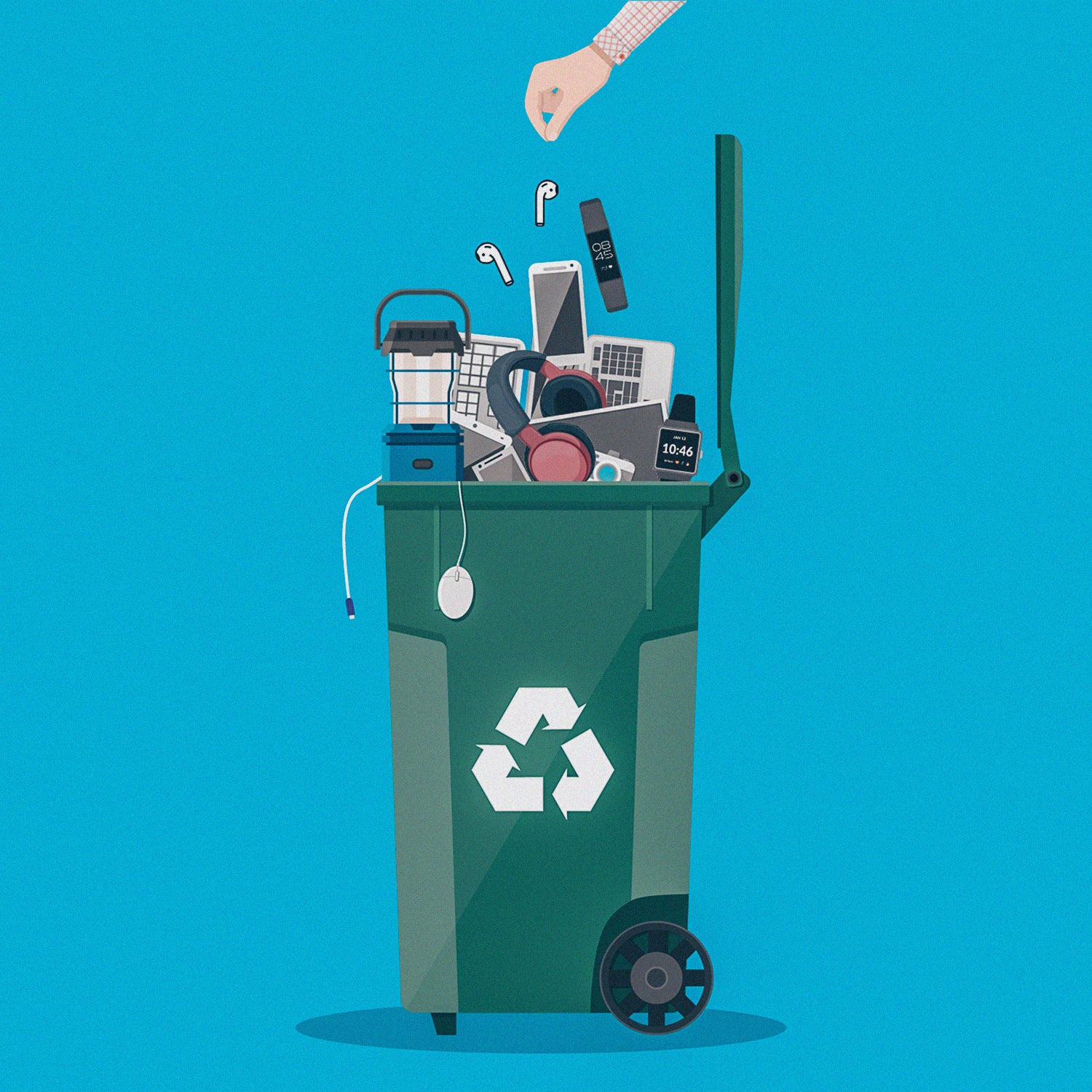Secure Your Ecological Dedication: Electronics Recycling with R2 Certification
Secure Your Ecological Dedication: Electronics Recycling with R2 Certification
Blog Article
Elevate Your E-Waste Management With R2 Accreditation: a Detailed Summary
One secret method to boost e-waste administration techniques is by attaining R2 certification. By exploring the advantages and procedures linked with R2 qualification, a deeper understanding of how it can reinvent e-waste management techniques emerges, losing light on a path towards sustainability and moral disposal practices.
Importance of E-Waste Management

When e-waste is not managed properly, these toxic substances can seep right into the ecological community, causing harm to wild animals and potentially getting in the food cycle, positioning dangers to human wellness. The improper disposal of e-waste contributes to contamination and greenhouse gas discharges, exacerbating climate adjustment and ecological deterioration.

Benefits of R2 Accreditation

To start with, R2 accreditation enhances integrity by showcasing a company's devotion to lasting methods. It guarantees consumers, partners, and stakeholders that the company sticks to strict requirements for e-waste administration - r2 certification. This reliability can cause raised trust and enhanced relationships with clients who focus on ecological duty
Secondly, R2 certification assists minimize dangers related to improper e-waste disposal. By complying with the stringent standards established forth by the accreditation, companies can reduce the probability of information violations, environmental contamination, and lawful effects. This aggressive technique safeguards the company's credibility and decreases possible responsibilities.
Finally, R2 accreditation demonstrates a dedication to environmental stewardship - r2 certification. By sensibly managing digital waste with certified processes, companies add to the conservation of resources, reduction of air pollution, and promotion of a circular economy. This dedication not just benefits the setting yet additionally straightens with developing consumer assumptions for lasting business techniques
R2 Certification Refine Introduction
Having actually established the benefits of R2 qualification in promoting reliability, danger mitigation, and environmental stewardship, it is necessary to now outline the thorough procedure included in obtaining this qualification. The R2 certification procedure begins with a detailed evaluation of the organization's functional policies and procedures to ensure compliance with the R2 standard. This initial assessment is crucial in determining any kind of voids that need to be resolved before proceeding additionally.
When the organization's practices line up with the R2 conventional demands, an independent third-party auditor carries out an on-site audit to review the execution and effectiveness of these methods. This audit includes an extensive evaluation of documents, interviews with team, and physical examinations of facilities to confirm conformity.
Complying with a successful audit, the organization receives an accreditation choice based on the auditor's searchings for. If accepted, the company is provided R2 accreditation, showing its commitment to responsible e-waste monitoring. It is important to note that preserving R2 certification needs ongoing conformity with the criterion's needs and routine audits to guarantee continued adherence to finest methods in e-waste recycling and disposal.
Secret Criteria for R2 Compliance
An important element of attaining R2 conformity is making sure that all electronic waste (e-waste) processing facilities satisfy rigorous environmental and safety standards. To abide with R2 needs, companies have to comply with key requirements that concentrate on responsible e-waste monitoring methods. These requirements include implementing a documented ecological, health and wellness, and safety and security administration system, guaranteeing the safe handling of data-containing gadgets, and conducting complete downstream due diligence to track the last location of e-waste products.
In addition, R2 conformity necessitates the appropriate testing, repair, and recycling of digital devices to expand its beneficial life and reduce environmental influence. Facilities looking for R2 certification must likewise focus on employee health and wellness and security by providing needed training, personal safety tools, and a secure workplace. In addition, maintaining comprehensive documents of e-waste processing activities and frequently undergoing audits by recognized accrediting bodies article source are essential elements of showing recurring compliance with R2 criteria.
Impacts of Lasting E-Waste Practices
The application of lasting e-waste methods according to R2 compliance not only guarantees environmental and safety and security criteria are met however also substantially impacts the overall lifecycle of digital products. By sticking to R2 standards, digital waste monitoring processes become extra efficient, minimizing the environmental impact of electronic items. Sustainable e-waste techniques promote the correct disposal of digital components, making sure that dangerous products are handled responsibly and do not wind up polluting the environment.
In addition, lasting e-waste practices can home contribute to task development in the recycling and refurbishment markets, cultivating financial development while advertising environmental duty. Generally, the adoption of lasting e-waste practices under R2 qualification offers as a critical action in the direction of attaining a more ecologically sustainable electronic devices industry.
Conclusion
Finally, carrying out proper e-waste monitoring practices is essential for environmental sustainability and resource preservation. R2 accreditation plays a key function in guaranteeing liable handling and disposal of digital waste. By sticking to the strict standards established forth by R2 criteria, organizations can not only reduce their environmental impact however likewise add to a much more sustainable future for generations to find.
One trick approach to boost e-waste administration methods is by obtaining R2 qualification. index By checking out the processes and advantages connected with R2 certification, a deeper understanding of exactly how it can change e-waste management methods emerges, losing light on a course towards sustainability and honest disposal practices.
The R2 certification procedure starts with a complete review of the company's operational policies and procedures to make sure compliance with the R2 criterion. If approved, the organization is given R2 certification, showing its commitment to accountable e-waste monitoring. Generally, the fostering of lasting e-waste techniques under R2 accreditation serves as an essential action towards accomplishing a more ecologically lasting electronic devices industry.
Report this page